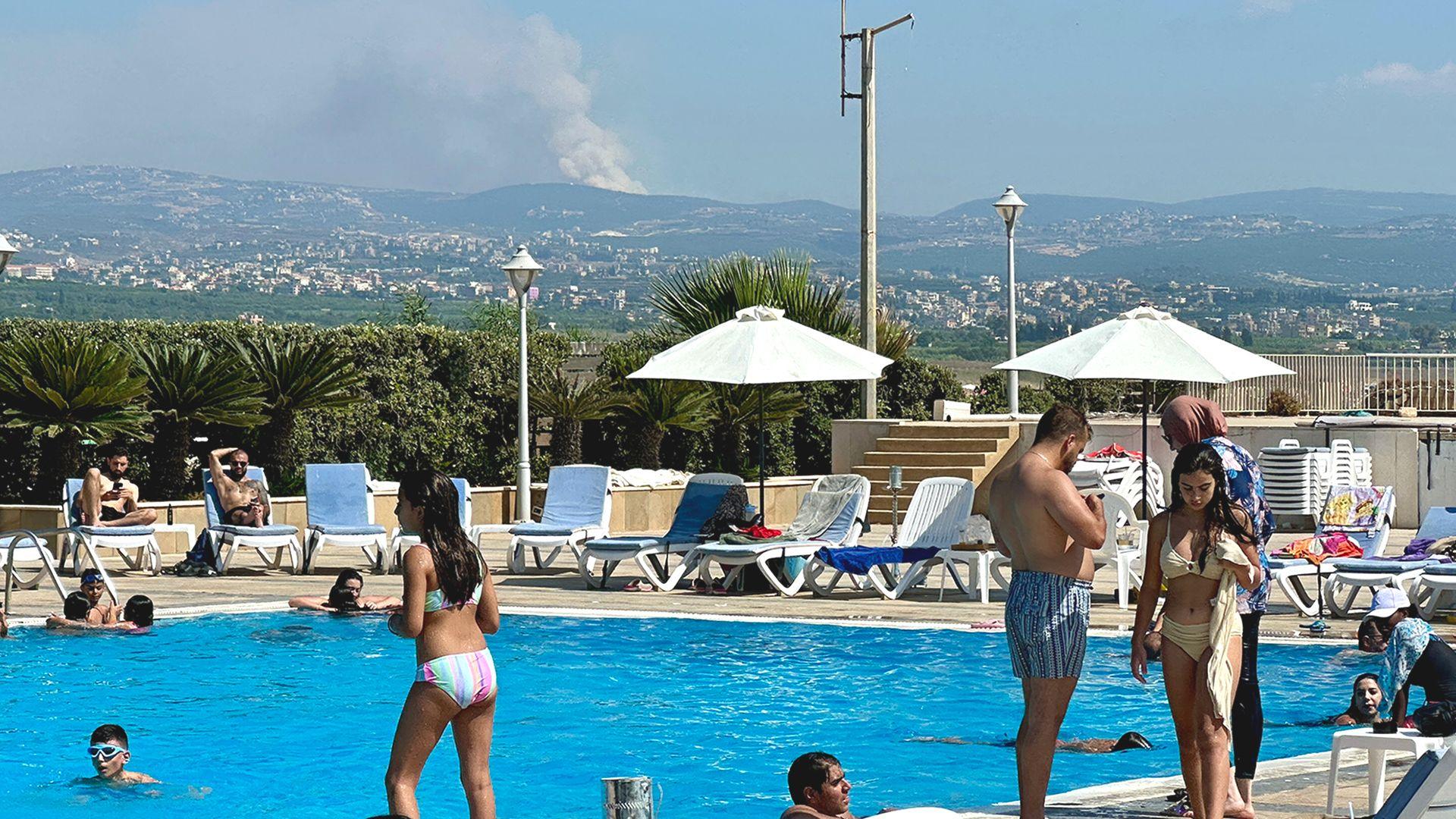Israel hits Hezbollah targets after football pitch strike kills 12 young people
Golan Heights strike: 'There was a siren, but no-one had time to react'
- Published
Israel says it has hit Hezbollah targets in Lebanon after 12 children and young adults were killed in a rocket strike while playing football in the Israeli-occupied Golan Heights.
The country's air force has blamed the Iran-backed militant group for Saturday's strike on the Druze town of Majdal Shams, but Hezbollah has strongly denied any involvement.
Early on Sunday, the Israel Defense Forces (IDF) said it had conducted air strikes against seven Hezbollah targets "deep inside Lebanese territory". It is unclear whether there were any casualties.
The rising tensions have the potential to trigger an all-out war between Israel and Hezbollah. Their forces have regularly exchanged fire since 7 October when Hamas attacked Israel, triggering Israel's military offensive on Gaza.
Saturday's bloodshed at the town's football pitch was the deadliest loss of life in and around Israel's northern border since October.
Fighting between Israel and Hezbollah, which had previously been sporadic, escalated when the militant group fired rockets at Israeli positions the day after the Hamas attack, in solidarity with Palestinians.
Israel's foreign ministry released the identities of 10 children killed in Saturday's strike, saying they were aged between 10 and 16.
An eleventh person was named but no age was given. Details of the twelfth casualty were not confirmed.
Verified video shows crowds of people on a football pitch and stretchers being rushed to ambulances.
Majdal Shams is one of four towns in the Golan Heights, where about 25,000 members of the Arabic-speaking Druze religious and ethnic group live.
On Sunday, thousands of people gathered in the town for the funerals of those killed.
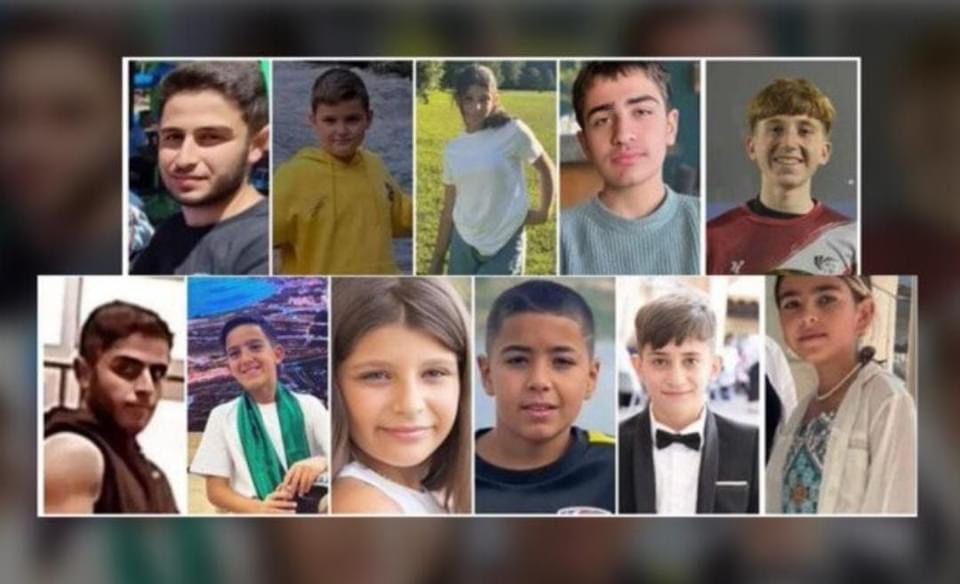
A handout from Israel's Foreign Ministry shows pictures of 11 of the 12 victims
Hezbollah spokesman Mohamad Afif denied responsibility for Saturday's strike in the Golan Heights.
However, Israeli Prime Minister Benjamin Netanyahu vowed retaliation immediately after it happened, saying the group would "pay a heavy price".
Hours later, the Israeli Air Force (IAF) said it had struck "terror targets" including "weapons caches and terrorist infrastructure" overnight.
Before reports of the strike's impact emerged, Hezbollah had claimed responsibility for four other attacks.
One was on a nearby military compound on the slopes of Mount Hermon, which lies on the border between the Golan Heights and Lebanon.
The base is around 3km (2 miles) from the football pitch.
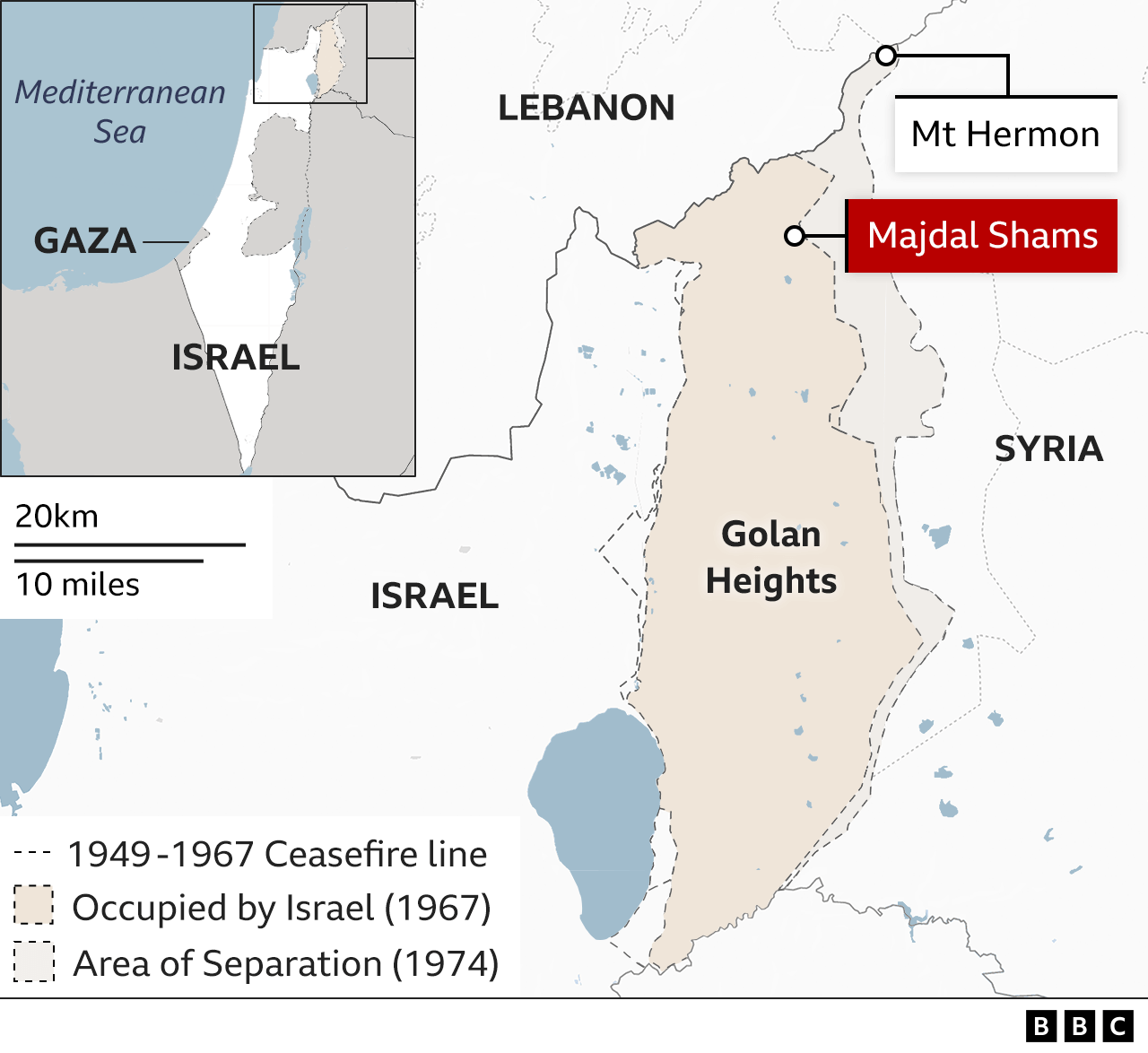
IDF spokesman Daniel Hagari, who visited the scene of the air strike, accused Hezbollah of "lying and denying responsibility for the incident".
He said that the rocket was an Iranian-made Falaq-1 "owned exclusively by Hezbollah".
"Our intelligence is clear," he said. "Hezbollah is responsible for the murder of innocent children."
Sheikh Mowafaq Tarif, the leader of the Druze community in the area, said the "horrific massacre" had crossed "every possible red line".
Meanwhile, Iran warned Israel that any new military "adventures" in Lebanon could lead to "unforeseen consequences", said Nasser Kanani, a spokesperson for Iran's foreign ministry, according to AFP.
The air strike prompted Mr Netanyahu, who was visiting the United States, to return home early. His plane landed in Israel on Sunday.
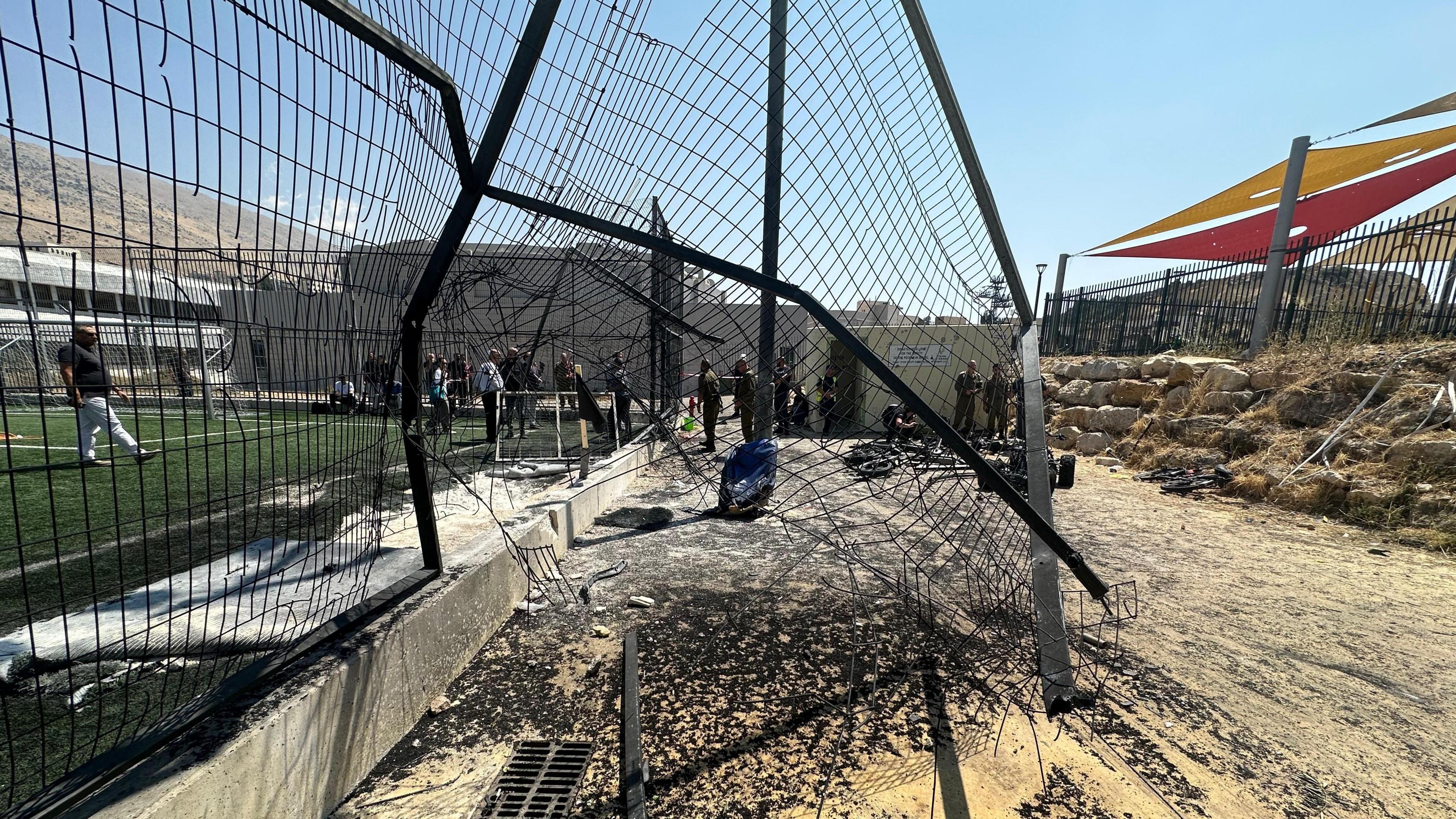
Damage at the football pitch in Golan Heights
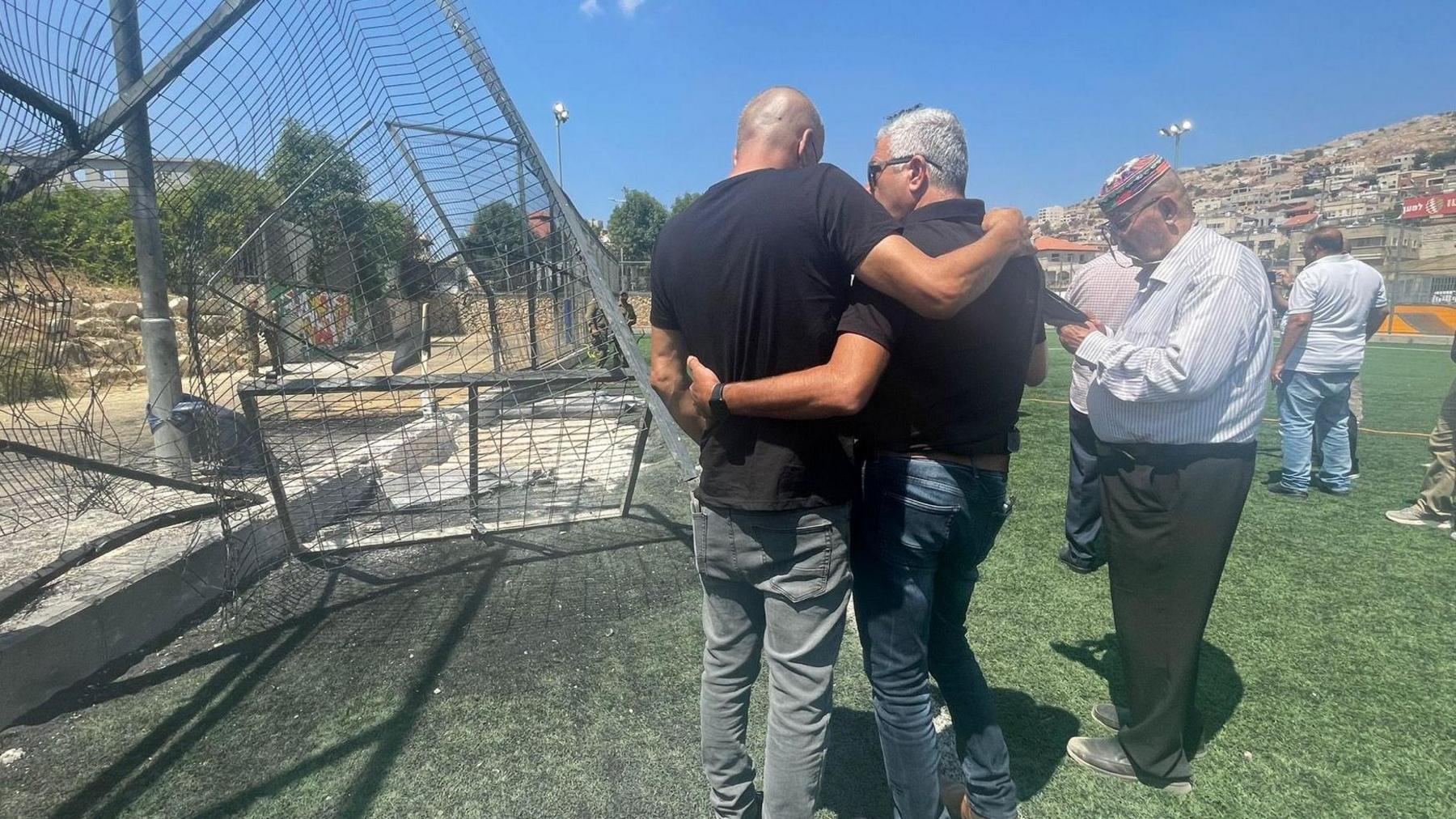
People gathered at the site of the air strike on Sunday
International leaders condemned the strike and cautioned against escalation, but differed on who was responsible.
US Secretary of State Antony Blinken told reporters on Sunday: "Every indication is that indeed the rocket was from Hezbollah." He said the US stands by "Israel's right to defend" itself, but does not want to see the conflict spreading.
Lebanon's government also issued a rare statement in response to the strike, saying it "condemns all acts of violence and aggression against all civilians and calls for an immediate cessation of hostilities on all fronts".
"Targeting civilians is a flagrant violation of international law and goes against the principles of humanity," the statement added.
The Lebanese Foreign Minister Abdallah Bouhabib told the BBC that he did not think Hezbollah carried out the attack.
“I don’t think Hezbollah would do it”, he said, explaining the group usually hits military targets, not civilian targets. But he added “it could be a mistake by the Israelis or by Hezbollah – I don’t know”.
"We are talking with Hezbollah because the victims are Druze and the Druze community here [in Lebanon] cares about them a lot. We are asking Hezbollah not to retaliate at this present time”, Mr Bouhabib said.
A United Nations statement, external said "maximum restraint" was crucial from all parties as the risk of a wider conflict would "engulf the entire region in a catastrophe beyond belief".
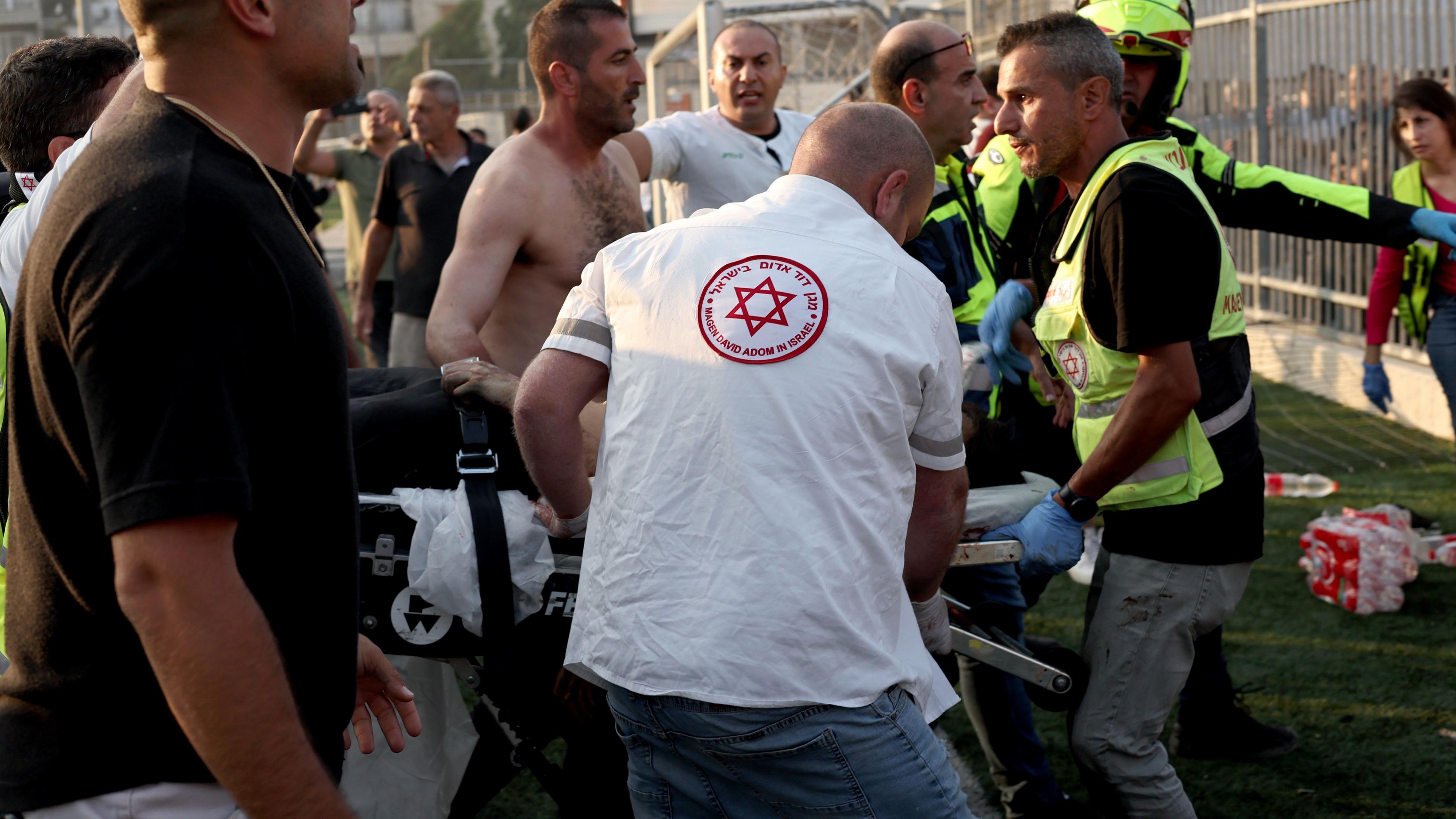
Stretchers were rushed to ambulances shortly after the strike
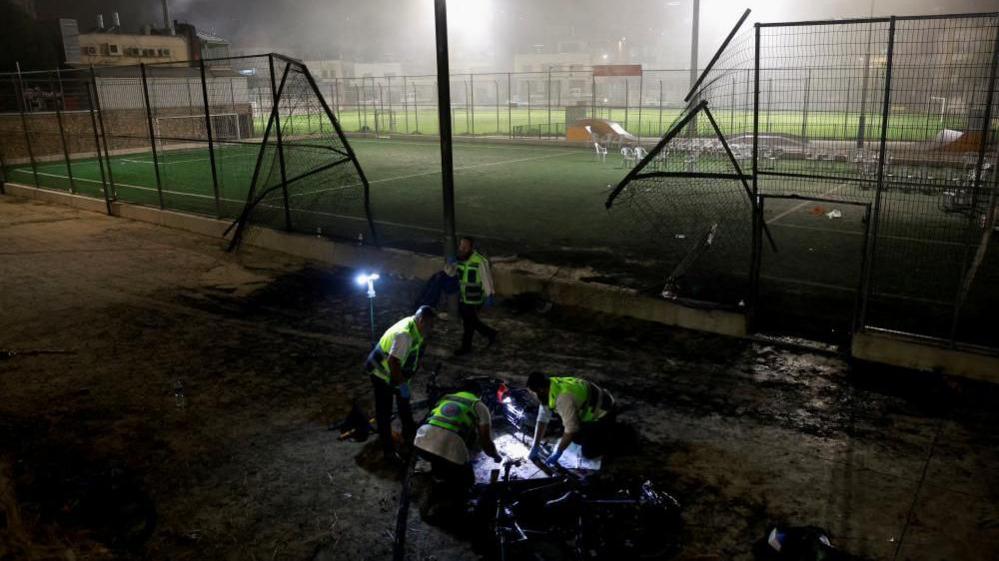
The rocket impact damaged the area around a football pitch in Majdal Shams
In Majdal Shams on Sunday, where bloodstains remained on the astroturf pitch, locals expressed grief, anger and worry.
Fighting back tears, Ugarit Abu Assad, 26, from nearby Buqata, told the BBC she feared a major escalation.
“I’m afraid of the consequences of all out war,” she said, adding that "a lot of people" could die.
Most Druze live in northern Israel, Lebanon, Jordan and Syria. In Israel, they have full citizenship rights and comprise about 1.5% of the population.
Those living in the Golan were offered Israeli citizenship when the region was annexed from Syria in 1981, but not everyone accepted.
Druze in the Golan can still study and work in Israel, though only those with citizenship can vote.
Male Israeli Druze are required to serve in the army. They are the largest non-Jewish group in the IDF.
The vast majority of the international community does not recognise Israel's annexation of the Golan Heights.
Additional reporting by Mallory Moench and Lucy Clarke-Billings
- Published27 July 2024
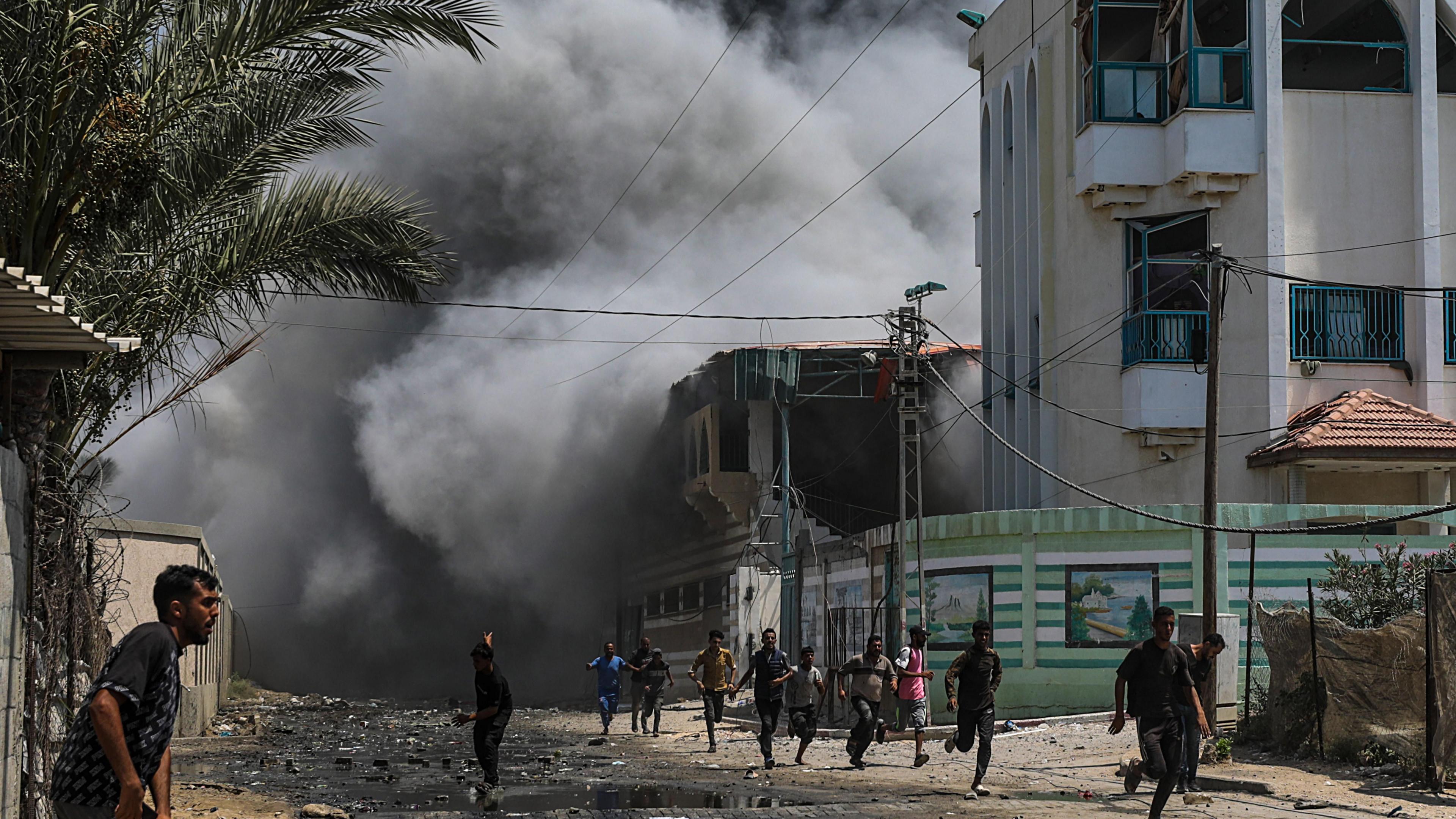
- Published23 July 2024
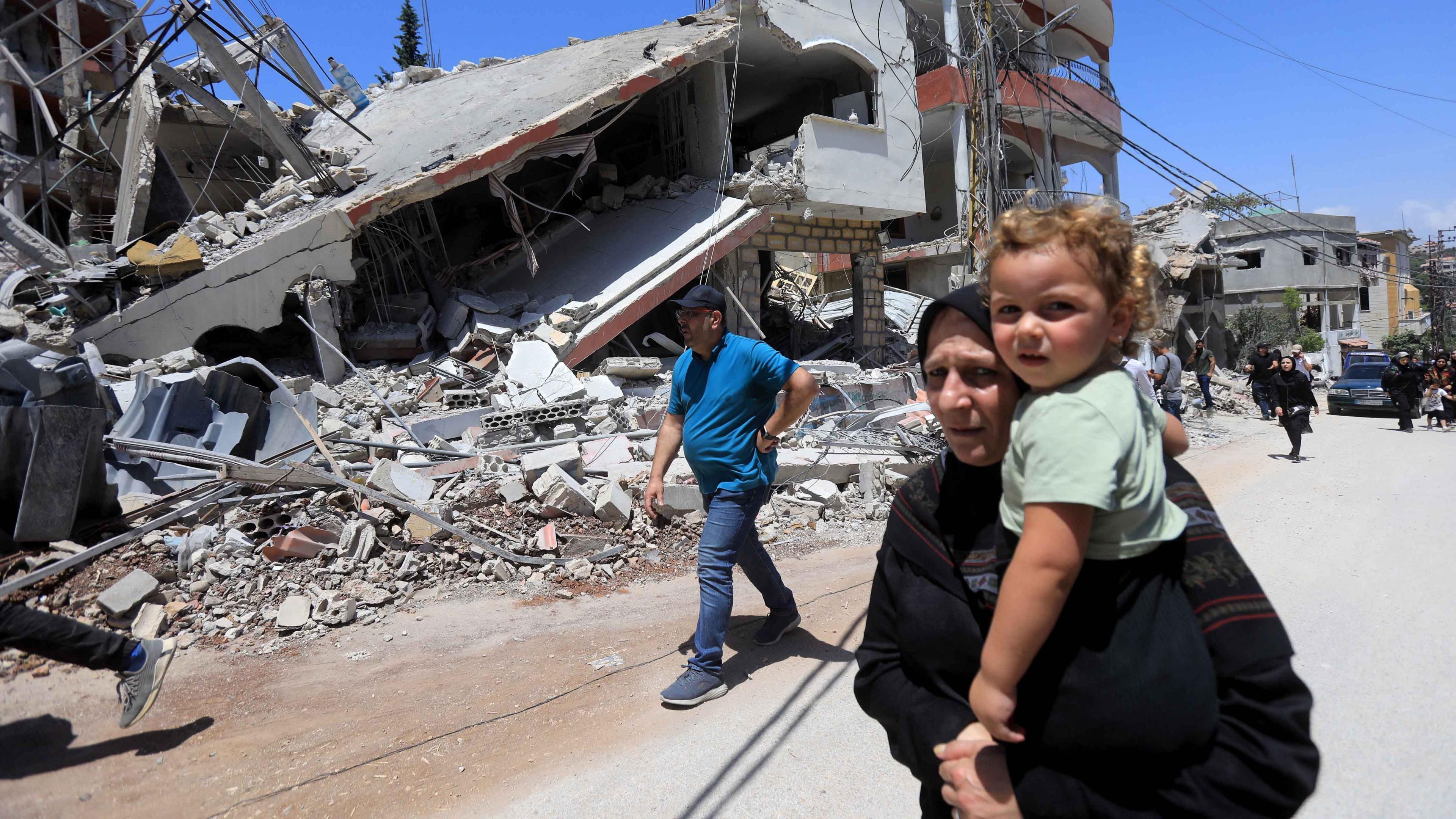
- Published17 July 2024
